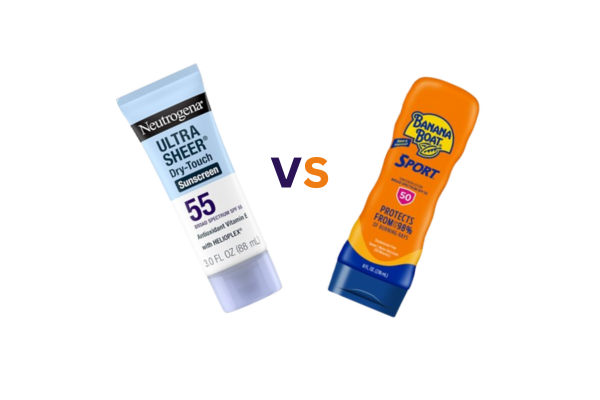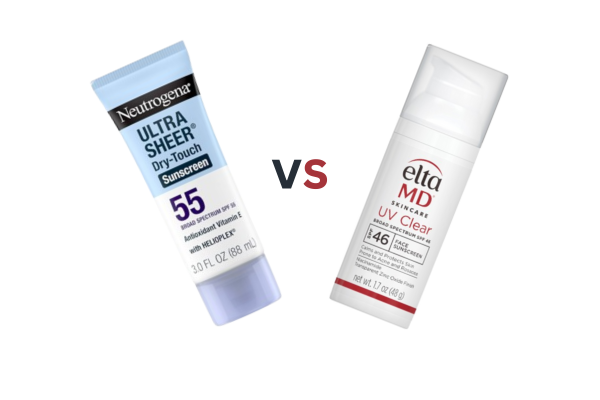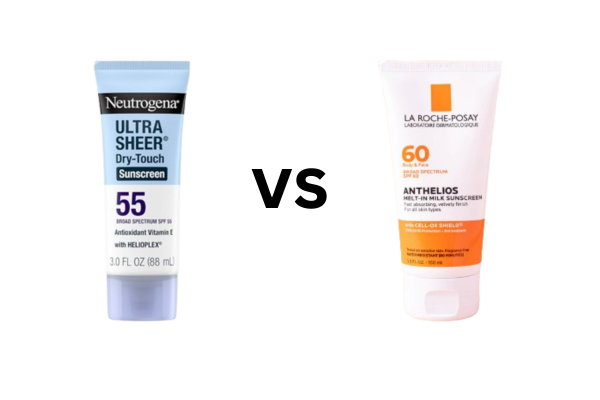It started with a breakout. Priya, a skincare enthusiast in her late 20s, had tried dozens of sunscreens, but they either left her skin greasy, irritated, or worse, clogged her pores. She had combination skin, prone to breakouts in summer and dryness in winter. When a friend suggested trying dermatologist-recommended sunscreens, she landed between two titans: La Roche-Posay and EltaMD. Both were praised across online reviews, both were recommended by dermatologists, and both promised superior sun protection. But Priya faced the ultimate dilemma: which one was right for her?
If you’re like Priya, you’ve probably already used multiple sunscreens and want to know the difference this time. At Shopwithchoice, we help users who have experienced sunscreens before but still haven’t found their perfect match. Choosing between La Roche-Posay vs EltaMD can be tough—they’re both dermatologist-recommended, but they differ in key ways that can significantly impact your skin health and skincare experience.
Here are the 9 essential differences every sunscreen user must know:
Table of Contents
1. Type of Sun Protection (Mineral vs. Chemical)
EltaMD offers a strong lineup of mineral-based sunscreens (using zinc oxide and titanium dioxide), which are ideal for acne-prone and sensitive skin types. Mineral filters physically block and reflect UV rays, making them great for post-procedure skin.
La Roche-Posay, on the other hand, primarily uses advanced chemical filters like Mexoryl SX and XL. These absorb UV rays and convert them into harmless heat. Chemical sunscreens are usually more lightweight and cosmetically elegant.
Stat: A 2022 study published in JAMA Dermatology noted that mineral sunscreens were less likely to cause skin irritation than chemical ones in patients with rosacea and eczema.
Features | La Roche-Posay Anthelios Melt-In Milk Sunscreen SPF 60 | EltaMD UV Clear Broad-Spectrum SPF 46 |
|---|---|---|
Preview | 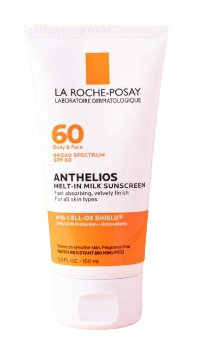 | 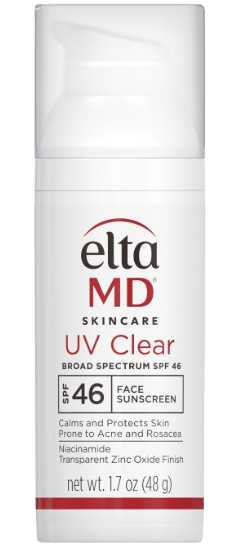 |
Brand | La Roche-Posay | EltaMD |
Skin Type | Combination | Dry |
Sun Protection Factor | 60 Sun Protection Factor (SPF) | 46 Sun Protection Factor (SPF) |
Item Volume | 150 Milliliters | 50 Millilitres |
Buy Now |
2. Texture and Feel on the Skin
La Roche-Posay Anthelios Melt-In Milk Sunscreen is praised for its lightweight, non-greasy feel. It absorbs quickly without leaving a heavy film.
EltaMD UV Clear, while also lightweight, has a more serum-like texture. It glides over the skin, making it perfect under makeup. However, it may leave a slightly more matte finish compared to La Roche-Posay.
3. White Cast Factor
One of the top concerns for users of mineral sunscreens is the white cast they can leave behind.
EltaMD UV Clear uses micronized zinc oxide, which minimizes white residue, but on deeper skin tones, some users still notice a slight cast.
La Roche-Posay’s chemical formulas generally leave no white cast, making them more inclusive for all skin tones.
Insight: According to the Skin of Color Society, chemical sunscreens are often better received in deeper skin tones due to their invisible finish.
4. SPF Range and PA Ratings
La Roche-Posay offers SPF levels up to 100 with high PA ratings (PA++++) for superior UVA protection. Their formulas often target specific conditions like pigmentation and photoaging.
EltaMD UV Clear maxes out at SPF 46 but is broad-spectrum and meets FDA requirements for UVA/UVB protection.
Tip: SPF above 50 offers marginally increased protection, but higher SPF is often recommended for people with melasma or sun sensitivity.
5. Formulation for Specific Skin Types
EltaMD UV Clear is formulated specifically for sensitive, acne-prone, and post-treatment skin. It contains niacinamide, which soothes inflammation and regulates oil.
La Roche-Posay’s Anthelios line includes antioxidant-rich thermal spring water and is better suited for normal to dry or sensitive skin types.
Fact: Niacinamide has been shown in clinical trials to reduce sebum production by up to 25% in 6 weeks (British Journal of Dermatology, 2021).
6. Water Resistance
La Roche-Posay Anthelios Melt-In Milk Sunscreen is water-resistant for up to 80 minutes, making it ideal for swimming or outdoor activities.
EltaMD UV Clear is not water-resistant and is more suitable for everyday indoor use or brief sun exposure.
Tip: Always reapply water-resistant sunscreens every 2 hours when swimming or sweating.
7. Fragrance and Sensitizing Ingredients
EltaMD products are fragrance-free and formulated to reduce allergic reactions.
La Roche-Posay offers both fragranced and fragrance-free options, but some users with reactive skin may prefer EltaMD for its minimalist ingredients.
8. Antioxidant Protection
La Roche-Posay includes antioxidant ingredients like vitamin E and their signature thermal spring water, which helps neutralize free radicals caused by UV exposure.
EltaMD UV Clear features niacinamide, an antioxidant that also improves the skin barrier and reduces redness.
Research: According to The Journal of Clinical Aesthetic Dermatology, antioxidants can boost sunscreen efficacy by 18% when applied together.
9. Packaging and Ease of Use
EltaMD UV Clear comes in an airless pump bottle, which reduces contamination and makes dispensing precise.
La Roche-Posay Anthelios often comes in squeezable tubes that can be harder to control but are easier to use for body application.
Final Thoughts: Which One is Right for You?
At Shopwithchoice, our goal is to help users who have already experienced different sunscreens make an informed decision that aligns with their unique skin type and routine. Whether you prioritize water resistance, finish, ingredients, or skin concerns like acne or pigmentation, knowing these 9 differences empowers you to choose better.
If you prefer mineral-based, acne-friendly sunscreen for sensitive or post-procedure skin, EltaMD UV Clear Broad-Spectrum SPF 46 may be your winner. But if you’re looking for a cosmetically elegant, fast-absorbing formula with high UVA/UVB protection and antioxidant support, La Roche-Posay Anthelios Melt-In Milk SPF 60 stands strong.
In the end, the best sunscreen is the one you will use every day, rain or shine.
Now that you know the essential differences between La Roche-Posay vs EltaMD, which one will you trust to protect your skin?



